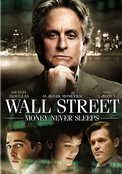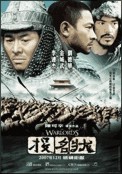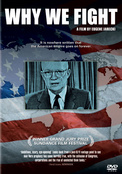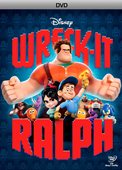|
Home
/ Latest Reviews / Review
Library |
Make sure you see the Latest Video Reviews page as well!
 |
W. (2008) |
 |
*Classic* The Wages of Fear (Le Salaire de la Peur) (France - 1952) |
 |
Waking Life (2001) |
 |
Walk on Water (Israel - 2004) |
 |
Walking Tall (2004) |
 |
Walk the Line (2005) |

|
Wallace & Gromit: The Curse of the Were-Rabbit (2005) |

|
WALL-E (2008) |
 |
Wall Street: Money Never Sleeps (2010) |

|
Wanted (2008) |
 |
War (2007) |
 |
The Warlords (China / Hong Kong - 2007) |
 |
The War of the Worlds (1953) |
 |
War of the Worlds (2005) |
|
WarGames (1983) |
 |
A War Named Desire (Hong Kong - 2000) |
 |
War Photographer (2001) |
 |
The Warriors (1979) |
 |
Warriors of Heaven and Earth
(China - 2003) |
|
Wasabi (France - 2001) |

|
Watchmen (2009) |
 |
Water (2005) |
 |
Watership Down (1978) |
 |
Waterworld (1995) |
 |
Wedding Crashers (2005) |
 |
The Wedding Date (2005) |
 |
The Wedding Planner (2001) |
 |
*Classic* West Side Story (1961) |
 |
What Dreams May Come (1998) |
 |
What Lies Beneath (2000) |
 |
What Planet Are You From? (2000) |
 |
What Women Want (2000) |
 |
Wheels
on Meals (1984) |
 |
Where a Good Man Goes (Hong Kong - 1999) |
 |
Where Eagles Dare (1968) |
 |
Who Am I? (1998) |
 |
Who Killed the Electric Car? (2006) |
 |
Why We Fight (2005) |
 |
The Whole Nine Yards (2000) |
 |
The Wild (2006) |
 |
Wild Things (1998) |
 |
Wild
Wild West
(1999)
Director: Barry Sonnenfield Starring: Will Smith, Kevin Kline, Kenneth Brannagh Plot: Two government agents must stop a diabolical mastermind from using his machines to take over the United States, circa 1880. Review: This movie has everything going for it: three good actors, some great effects, a high concept, and terrific production values. So how could it miss? Well, it does. The script is terrible, the situations contrived, and the laughs are non-existent. As for the actors, Will Smith doesn't look like he wants to be there and Kevin Kline is sorely, sorely misused. The saving grace here is Kenneth Brannagh, who does a delicious turn as a megalomaniac evil genius. The film has its moments, and it's still entertaining enough, but hardly anything special. Entertainment: 4/10 |
 |
Willy
Wonka & the Chocolate Factory (1971) |
 |
Windtalkers (2002) |
|
Wing Chun (1994) |
 |
Winged Migration (France - 2002) |
 |
Wings of the Dove (1997) |
 |
Winter Sleepers (Germany - 1997) |
 |
*Classic* The Wizard of Oz (1939) |
 |
The Wog Boy (2000) |

|
X-Men Origins: Wolverine (2009) |
 |
Wonder Boys (2000) |
 |
The World Is Not Enough (1999) |
 |
The World's Fastest Indian (2005) |
 |
World Trade Center (2006) |
 |
A World Without Thieves (China - 2004) |

|
Wreck It Ralph (2012) |
 |
Wuthering Heights (Mexico
- 1953) |
|
Home
/ Latest Reviews / Review
Library |